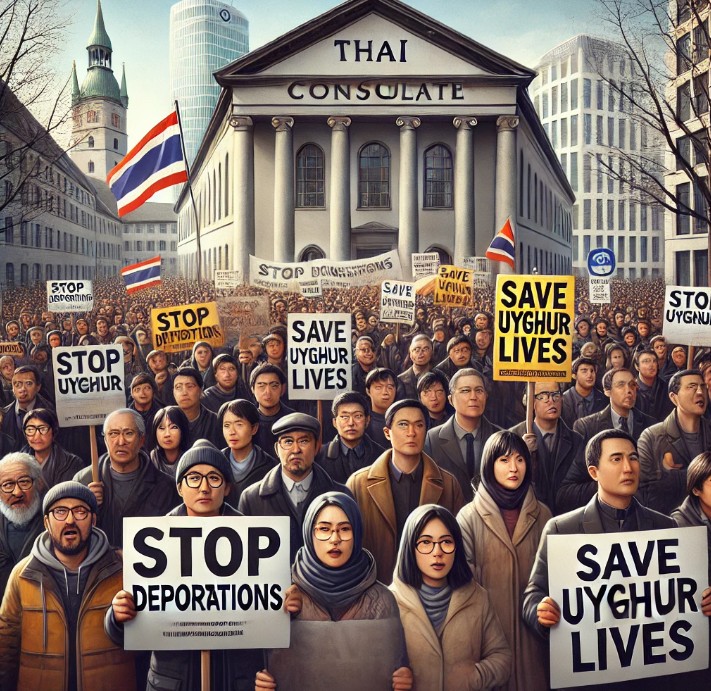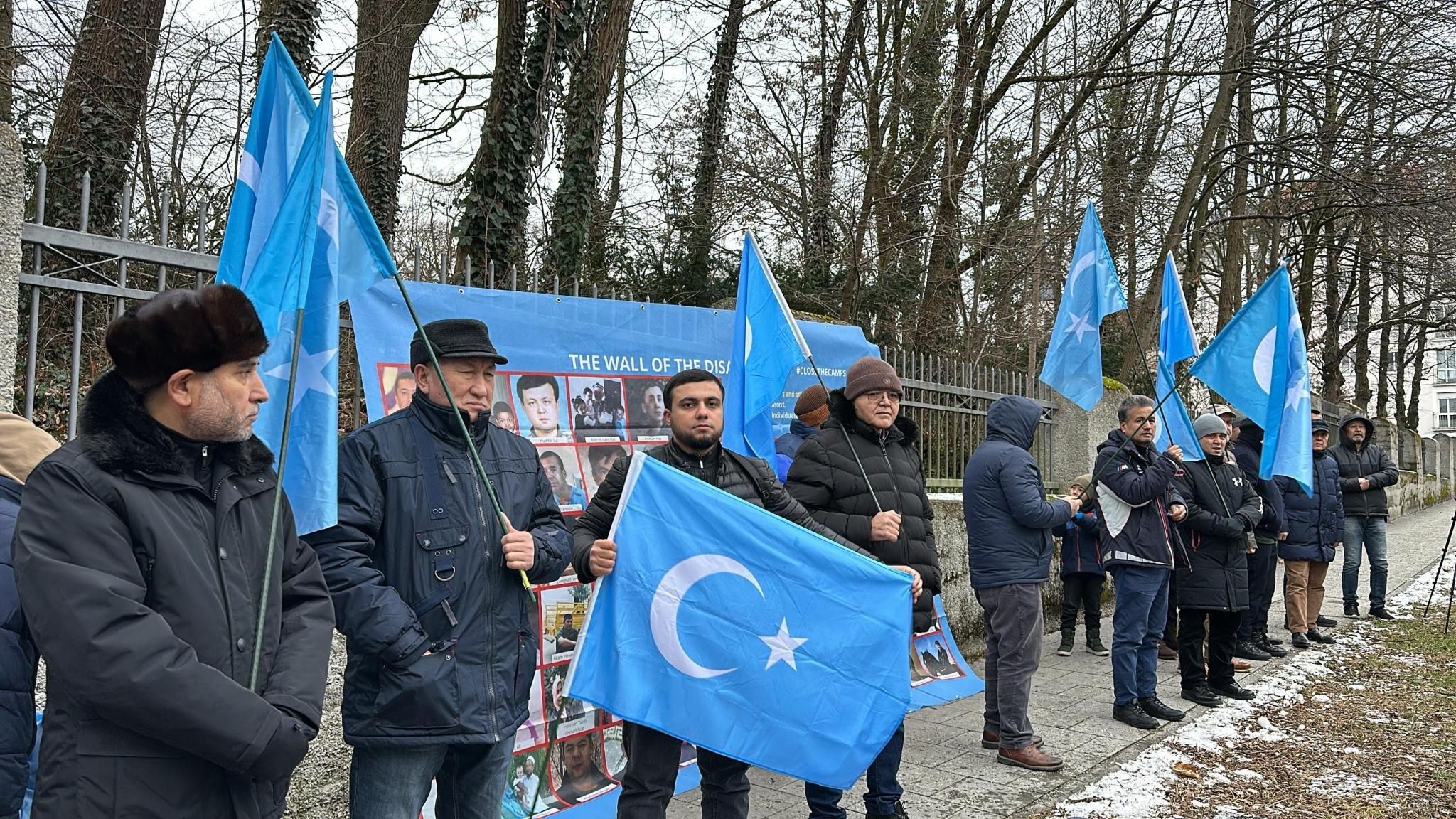BANGKOK – A Thai court opened a hearing on Friday into the fate of 43 Uyghurs who have spent more than a decade in detention, sparking renewed fears of their potential deportation to China, where they face the risk of persecution and torture. IJ-Reportika has extensively covered the plight of Uyghur detainees in Thailand and has actively campaigned against their deportation in its report, Thailand Faces Backlash Over Plans to Deport 48 Uyghurs to China.
Human rights groups, including Justice for All, reported last month that Uyghur asylum seekers in Thai detention centers were coerced into filling out forms as part of preparations for their forced repatriation to China. While Thai authorities have denied these allegations, concerns persist over the detainees’ safety.
Lawyer Chuchart Kanpai submitted a petition on Jan. 29, arguing that the Uyghurs had already served sentences for illegal entry into Thailand and should be released. “The 40-plus Uyghurs in detention have not committed crimes in China. They have already served their sentences for illegal entry into Thailand but have endured deteriorating conditions in detention for more than 11 years,” Chuchart told the court.
Representatives from multiple embassies and the United Nations attended the proceedings, but none of the detained Uyghurs were present.
Uyghurs in China’s Xinjiang region have faced systematic human rights abuses, including arbitrary detention in concentration camps. The Chinese government denies these allegations, but on Jan. 21, UN experts urged Thailand not to deport the Uyghurs, warning of the severe risk of torture upon their return.
The 43 detainees remain in an immigration facility in Bangkok, while another five, not included in the current petition, are held in prison. They were originally part of a larger group of more than 350 Uyghur men, women, and children detained in 2014. While 172 were resettled in Turkey, 109 were forcibly deported to China, and at least five died due to inadequate medical care.
Thailand, Washington’s oldest treaty ally in Asia, faced significant international criticism in 2015 when it deported Uyghur asylum seekers to China. Despite not being a signatory to the 1951 U.N. Refugee Convention, Thailand has been urged to uphold its obligations under international law, including the principle of non-refoulement, which prohibits the return of individuals to countries where they could face persecution.
The petition before the court seeks a review under the Criminal Procedure Code to determine whether the Immigration Bureau should release the detainees.
Three witnesses testified on Friday, including Chuchart, Uyghur interpreter Bahtiyar Bora, and independent researcher Nirola Selima. Bahtiyar, a former interpreter for Uyghur cases, shared his personal history of fleeing persecution. “I was born in a small village in Xinjiang in 1948. During China’s Cultural Revolution, my father was arrested, and my mother was killed by the Red Guards. Those conditions forced me to flee, and I found a new life in Australia,” he testified. “When I visited the Uyghurs in Thai detention, I saw myself as a child in their situation. I beg you to release these Uyghurs so they can have peaceful lives like you and me.”

Selima provided testimony on the detainees’ worsening health conditions. “Many detainees face serious health issues with limited medical access,” she said. “Those inside are in terrible condition, as if slowly awaiting death.”
Chamroen Phanomphakakorn, the lawyer representing the petitioners, emphasized that if the court finds merit in the petition, it must order further investigations and summon police officials. “If the detention is found illegal, the court must order the Uyghur detainees’ release,” he told BenarNews.
The hearing is set to resume on Feb. 18.
IJ-Reportika continues to shed light on the persecution of Uyghurs globally, advocating for their rights through investigative reporting and interviews with key figures such as Dolkun Isa, Rushan Abbas, and Abduweli Ayup. As international pressure mounts, Thailand faces a critical decision—whether to uphold human rights principles or cave to diplomatic and economic pressures from China.
For further insights into Uyghur persecution and IJ-Reportika’s investigations, read our full report here.




